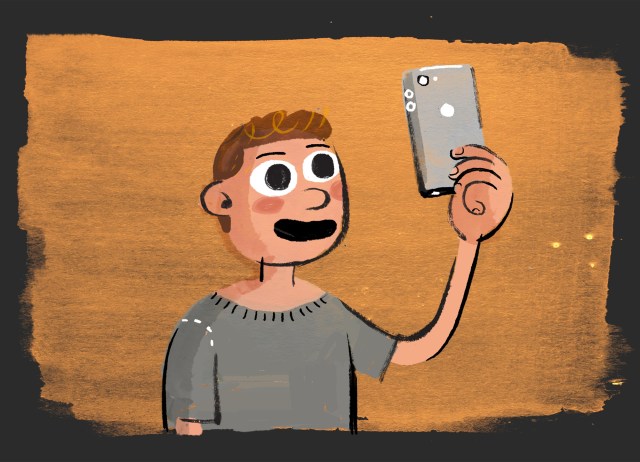Stephen Collins

This is the seventh of ten themes in Nigel Cameron’s open letter to Mark Zuckerberg, exploring obstacles to him seeking the US presidency. Click here for whole series.
It would be funny if it wasn’t so serious but what on earth was your company thinking of when, after the BBC pointed out 100 sexualised images of children on Facebook, you not only failed to remove all of these images (only 18 were actually removed), but you reported the BBC to the police!? The BBC also identified five convicted paedophiles with Facebook profiles. These weren’t removed either.
I hope you’ve fired those people already. But this does not look like the behaviour of a corporation fundamentally committed to children.
Natasha Lomas of Techcrunch[1. Natasha Lomas, Techcrunch, 7 March, 2017. “Facebook’s content moderation system under fire again for child safety failures.” ] is clear about the problem:
“Facebook is not putting in the resources needed to fix the current problem it has with moderation – even as it directs resources into trying to come up with possible future solutions where AI-moderation can be deployed at scale. But if Zuckerberg wants to do more right now, the simple fix is to employ more humans to review and act on reports.”
Why not bring in a group of experts in child protection, and give them all the budget they need and authority over every Facebook function so they could clean this up and keep it clean? For our children, and the company and – oh yes – your candidacy, this could be a terrific investment.
But in the child protection arena, stopping the posting of X-rated imagery is the easy bit. Much more profound and challenging is the growing evidence that social media is bad for the mental and social health of young people. Facebook, like other social media platforms, has “a negative effect because they can exacerbate children’s and young people’s body image worries, and worsen bullying, sleep problems and feelings of anxiety, depression and loneliness, the participants said.” This is from a poll of young people[2. Denis Campbell, in The Guardian, 19 May, 2017, “Facebook and Twitter ‘harm young people’s mental health’.”]. It chimes with warnings from child protection charities like Britain’s NSPCC, which blames rising incidents of self-harm on social media. It also meshes with serious academic research[3. For example, there’s MIT professor Sherry Turkle’s extensive research. Here is a review of her book Alone Together. Why We Expect More from Technology and Less from Each Other. From that review comes this helpful summary: “Those children, meanwhile, are absorbed in the digital world in a way that older generations, with memories of analogue living, can barely comprehend. Turkle interviews teenagers who are morbidly afraid of the telephone. They find its immediacy and unpredictability upsetting. A phone call in “real time” requires spontaneous performance; it is “live”. Text messages and Facebook posts can be honed to create the illusion of spontaneity… This digital generation also expects everything to be recorded. In any social situation, there are phones with cameras that relay personal triumphs and humiliations straight to the web. Turkle’s interviews debunk the myth that web-savvy kids don’t care about privacy. Rather, they see it as a lost cause. The social obligation to be part of the network is too strong even for those who resent the endless exposure. Teenagers perform on the digital stage, suppressing anxiety about who is lurking in the audience… Turkle has interviewed people of all ages and from a wide range of social backgrounds and finds identical patterns of compulsive behaviour. We start with the illusion that technology will give us control and end up controlled. We get Blackberries to better manage our email, but find ourselves cradling them in bed first thing in the morning and last thing at night. Children compete with mobile phones for their parents’ attention. From that anxiety flows ever greater reliance on technology to mediate human relations. Human beings can be needy, capricious, threatening, but at least calls can be diverted, emails blocked, Facebook friends “unfriended”. Turkle sees this too as a symptom of incipient roboticism. The network encourages narcissism, teaching us to think of other people as a problem to be managed or a resource to be exploited.”].
As a parent and a responsible business owner and a prospective President of the United States, what do you have to say about the impact that social media is having on our kids? We need to know, and we need you to be using your vast resources and influence in their interest. How much research does Facebook fund on the impact of social media on children – and how much influence does that research have on how Facebook operates? Perhaps you’d like to publish it, Mark? Don’t parents deserve to see it? And if you’re not commissioning such research, don’t be surprised if some people are reminded of the tobacco industry and its historic refusal to face up to the impact on their customers’ physical health.
Of course, the challenges go way beyond social media use by healthy kids. I just Googled “Facebook and child,” and four of the first five choices were these: protection, predators, safety, and trafficking (the fifth was custody). That is bad news for your company – and you. Especially if you plan a career in public office.










Join the discussion
Join like minded readers that support our journalism by becoming a paid subscriber
To join the discussion in the comments, become a paid subscriber.
Join like minded readers that support our journalism, read unlimited articles and enjoy other subscriber-only benefits.
Subscribe